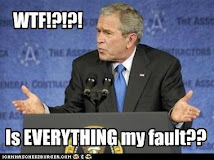Any thinking person in this country has to admit that our public education system is broken. We only rank #21 in the world for the population with the most high school and college graduates. The system is stuck on stupid and continues to go down hill.
The literacy rates among fourth grade students in America are sobering. In a recent report by the Annie E. Casey Foundation, one out of three students scored "below basic" on the 2009 National Assessment of Education Progress (NAEP) Reading Test. Among these low performing students, 49 percent come from low-income families. Even more alarming is the fact that more than 67 percent of all US fourth graders scored "below proficient," meaning they are not reading at grade level.
Reading proficiency among middle and high school students isn't much better. On the 2009 NAEP Reading Test, about 26 percent of eighth graders and 27 percent of twelfth graders scored below the "basic" level, and only 32 percent of eighth graders and 38 percent of twelfth graders are at or above grade level.
No matter where you fall on the political spectrum you must realize that this is quickly becoming an issue of national security. We cannot continue to perform on the world stage if we can't get fourth graders reading at grade level. Public schools are not going anywhere and they must be fixed.
The problem becomes how do we fix them. Conservatives and liberals have different views on how this should be accomplished. Typically conservatives are for school choice and allowing the money to follow the child. Liberals are putting more money into the system. Neither one of these solutions on their own will solve the problems that we have. We need to move beyond political ideology to find the solutions that are right for the local population of school aged children.
One of the latest trends in education is college prep courses for everybody. Some children are not going to go to college, and it is not always about money. Some kids just are not cut out for post-secondary education. A case in point, I have a family member who had some issues while in high school. Nothing major, but enough that he could have easily gone down the wrong path. After graduation and shortly after 9/11 he decided to join the marines. He signed up for a four-year stint and was given some educational incentives. After serving his four years and spending some time in Iraq at the onset of the war, he decided to get out of the marines and go to college. He believed that is what his mother wanted him to do. His mother wanted him to be happy and a well-adjusted adult. He went to college for one semester and dropped out. He then flitted around doing some interesting jobs; including fishing in Alaska. What he realized is that he liked the structure that the corp provided for him. He is back in the marines, happily married and a daddy of a beautiful baby girl. The military is something that works for him. He has served in a theater of war, he understands what he has committed to. It may not be everyone else's choice of a career, but for him it is a fit. He is happy, so his mother is happy for him.
But we continue to push the narrative that a college education is mandatory. It is not, nor is it the best thing for every kid.
Over time, it morphed into the theology that every child should go to college (a four-year liberal-arts college at that) and therefore every child should be required to pursue a college-prep course in high school. The results have been awful. High school dropout rates continue to be a national embarrassment. And most high school graduates are not prepared for the world of work. The unemployment rate for recent high school graduates who are not in school is a stratospheric 33%. The results for even those who go on to higher education are brutal: four-year colleges graduate only about 40% of the students who start them, and two-year community colleges graduate less than that, about 23%. "College for everyone has become a matter of political correctness," says Diane Ravitch, a professor of education at New York University. "But according to the Bureau of Labor Statistics, less than a quarter of new job openings will require a bachelor of arts degree. We're not training our students for the jobs that actually exist." Meanwhile, the U.S. has begun to run out of welders, glaziers and auto mechanics--the people who actually keep the place running.
One of the solutions for our educational system is being played out in Arizona.
Two years later, with the $2.4 million agricultural- and technical-sciences building up and running, Martin says, "It's without doubt the best program we have. It's an alternative way to teach them math, science and reading. They love it. They're attentive, working hard, hands on." McBride imports veterinarians from around the country to visit the reservation and work with the 226 students, who assist in both operating theaters, prepping animals for surgery and learning how to suture, draw blood and give injections. The veterinary clinic has become a valued resource on the reservation, but more than that, the academic results have been spectacular. "Nearly every one of these kids passed the state comprehensive test we give to 17-year-olds in Arizona," Martin told me. "Less than about 40% of my non-vocational-education students passed.
Clyde McBride pushed and pushed to get this program into place at one of the reservations. These kids are doing well, they are excited to learn and are happy to be in school everyday. They are learning, but more importantly they are gaining a work ethic that will follow them for the rest of their lives. Some of these kids are college bounds kids, but they have a step up on many others who go to college, for one thing they have already been given a skill that will be useful to their professional lives. They have direction in their lives. They are not in college to go to parties and "find themselves".
School systems are beginning to see that doing away with career path education programs was a mistake that was made 40 years ago. They were considered racist, as many in the programs were people of color. It wasn't that the programs were wasteful, they were just not done properly. There are many high schools popping up all over the nation that are giving career skills to students. Not all of these schools are in poor urban areas or have a majority of minorities in them. One of my local high schools has a career track for students. I am not sure of all the different offerings that they have, but one is in retail fashion and the other is in hairdressing. Both will give high school students a marketable skill that they can use immediately following graduation to find themselves a job. I have not been to this hairdresser in quite some time, but I used to pay $300 to have my hair highlighted and cut. She and her now husband paid for their rather large wedding themselves. He is a chef. My only point being that obviously they made a good living in order to pay for that wedding and still own a home.
What sense does it make for students to take out tens of thousands of dollars in loans when so many don't graduate? College has become like a rite of passage instead of what it should be; a means to an end. The end result being an education that will give that person the ability to obtain marketable skills and a job. Don't get me wrong, I am not saying that college is a waste of time, but it certainly is not for everyone. There is a student loan bubble getting bigger all the time and sooner or later this bubble is going to burst.
We need to stop thinking in terms of a one size fits all mentality that post secondary education is mandatory for all. It isn't. There are plenty of jobs that are good paying and do not require a 4 year college degree. We need to change the paradigm of education in this country and realize that what worked in the 70's is obviously no longer working. We need to look at the programs around the country that are successful and adapt them to different community needs. Obviously a school that offers vet clinic services isn't going to work in the inner city. But other programs will. Inner city communities need bus drivers, truck drivers, mechanics, machine operators, construction workers, and a variety of other skilled workers. It is time that we stop being so snobby and realize that those jobs help make America run too.




























No comments:
Post a Comment